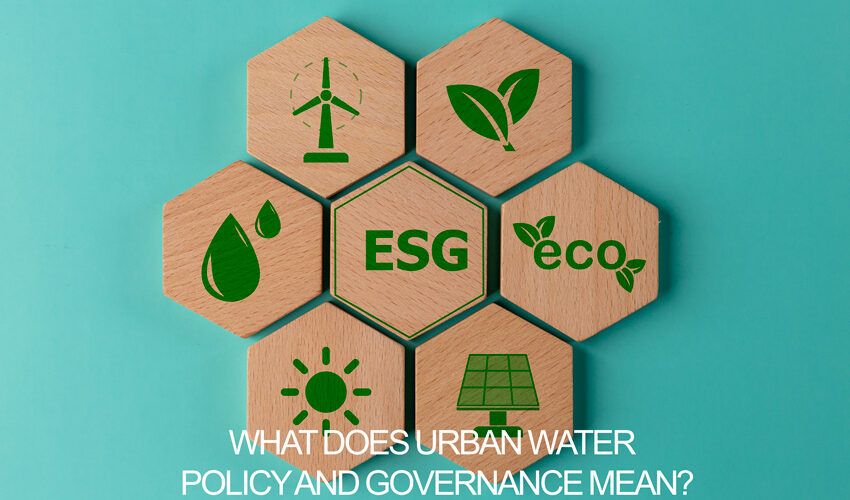Urban water policy and governance refer to the set of principles, rules, regulations, and processes that guide the management and use of water resources in urban areas. This encompasses a range of activities aimed at ensuring the sustainable, equitable, and efficient provision of water services to meet the needs of urban populations while protecting the environment and supporting economic development. Here’s a breakdown of what urban water policy and governance entail:
Policy Development: Urban water policy involves the formulation of goals, objectives, and strategies to address key water-related issues in urban areas, such as water supply, wastewater management, stormwater management, water quality, water conservation, and water resource allocation. Policies may be developed at various levels of government, including local, regional, and national levels, and may be informed by input from stakeholders, experts, and the public.
Regulatory Framework: Urban water governance establishes the legal and institutional framework for managing water resources in urban areas, including laws, regulations, ordinances, and administrative procedures governing water use, water rights, water quality standards, and environmental protection. This framework often involves multiple government agencies, regulatory bodies, and stakeholders responsible for different aspects of water management, such as water utilities, environmental agencies, public health departments, and planning authorities.
Decision-Making Processes: Urban water governance encompasses the processes and mechanisms for decision-making, coordination, and collaboration among stakeholders involved in water management, including government agencies, utilities, businesses, community organizations, and the public. This may involve participatory approaches, stakeholder engagement, public consultations, and multi-stakeholder partnerships to facilitate consensus-building, transparency, and accountability in decision-making.
Infrastructure Planning and Investment: Urban water governance includes the planning, design, construction, operation, and maintenance of water infrastructure, such as water supply systems, wastewater treatment plants, stormwater drainage systems, and water distribution networks. This involves strategic investment in infrastructure to meet current and future water demand, improve service reliability, and enhance resilience to climate change and natural disasters.
Financial Management: Urban water governance addresses the financial aspects of water management, including revenue generation, cost recovery, tariff setting, budgeting, and financing mechanisms for infrastructure development and maintenance. This may involve public-private partnerships, user fees, subsidies, grants, loans, and other financial instruments to ensure the sustainable funding of water services and infrastructure.
Capacity Building and Institutional Development: Urban water governance involves building the capacity of government agencies, utilities, and stakeholders to effectively manage water resources and deliver water services. This includes training, technical assistance, knowledge sharing, and institutional strengthening to enhance governance structures, improve regulatory compliance, and promote best practices in water management.
Overall, urban water policy and governance play a crucial role in addressing the complex challenges of water management in urban areas, including population growth, urbanization, climate change, pollution, and competing water demands. Effective policy and governance frameworks are essential for ensuring the sustainable and equitable provision of water services, protecting public health and the environment, and promoting the long-term prosperity and resilience of urban communities.

